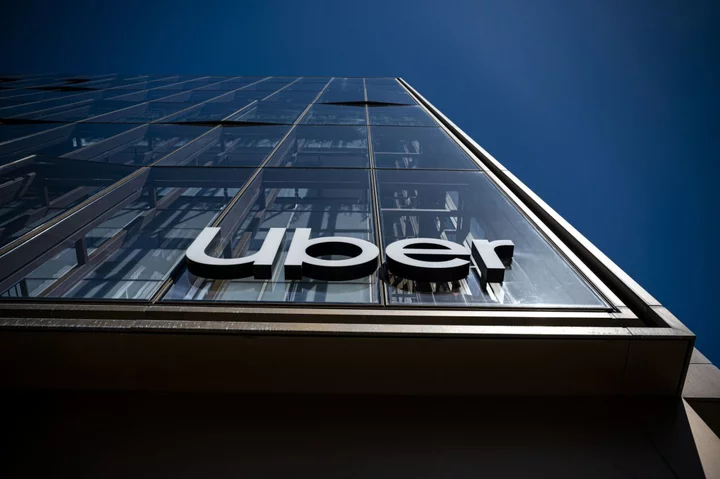Uber Technologies Inc. shares jumped after showing a second consecutive profitable quarter and an increase in demand for rides and delivery.
The company reported income from operations of $394 million in the three months ended in September and overall trips growth of 25%.
The company also reported revenue of $9.3 billion, up 11% from a year earlier but marking the slowest revenue growth in 10 quarters and missing analyst estimates.
The shares rose 3.7% to close at $49.92 in New York after fluctuating throughout the day. The stock has risen 102% this year.
Uber’s rideshare business continued to expand faster than analysts expected in the third quarter, thanks to improvements in driver supply and trip growth from back-to-school rides and the return of corporate travel. Uber also included new offerings in the past quarter such as partnering with Alphabet Inc.’s Waymo to provide ride-hailing of autonomous vehicles on its app, starting in Phoenix. Gross bookings in the mobility, or rideshare, business jumped 31%.
But growth in the delivery segment was more sluggish, with bookings up 18%, and the freight business continues to struggle, as bookings tumbled 27% in the quarter.
Despite the strength in its rideshare business, Uber said total revenue was affected by “business model changes” that began in the first quarter in 2020. Overall third-quarter revenue growth was impacted by a re-classification of certain costs, including payments to drivers or couriers and promotions to platform users or its drivers and couriers, which negatively affected revenue by $521 million in the period. Uber said in the aggregate there’s been no economic change to operating income or adjusted Ebitda.
Chief Executive Officer Dara Khosrowshahi was optimistic about the results, saying on a call with investors that they “demonstrate that Uber continues to drive profitable growth at scale—and why we believe we’re well positioned for the journey ahead, in good or bad macro environments.”
The company forecast bookings and profit in the last three months of the year that topped analysts’ estimates, signaling robust demand for ride-hailing and food delivery in the busy holiday period.
Total gross bookings, which include rides, delivery and freight, are projected to be $36.5 billion to $37.5 billion in the fourth quarter. Adjusted earnings before interest, tax, depreciation and amortization will be another record of $1.18 billion to $1.24 billion.
Khosrowshahi said the local nature of Uber’s business makes it more resistant to economic uncertainty. He said Uber is also benefiting from the continued shift of consumer spending from retail to services.
Uber has been making significant efforts to get more drivers back on the platform after struggling with a shortage that increased fares and wait times. The company said it now has a record 6.5 million active drivers and couriers on the platform. The number of monthly active platform consumers grew 15% in the quarter from a year earlier, with monthly trips matching an all-time high.
“Both the mobility and delivery segments generated accelerating bookings and hit record high Ebitda margins as a percentage of bookings. That’s fundamentally impressive,” said Evercore ISI analyst Mark Mahaney.
Uber’s profitability has been a focus since it posted its first operating income on a generally accepted accounting principles basis in the second quarter, a milestone it was able to achieve for a second time in this report. Investors also have been paying attention to the San Francisco-based company’s ability to manage costs and return capital to shareholders as the once free-wheeling startup matures. Free cash flow, which has been a priority for Uber’s management, was $905 million in the third quarter, ahead of the average estimate of $652 million.
Outgoing Chief Financial Officer Nelson Chai said the results make Uber eligible for inclusion in the benchmark S&P 500 Index.
Uber said the delivery segment was able to improve profit margins by leveraging costs from higher volumes and increased advertising revenue. The company’s advertiser base grew over 70% from a year earlier to more than 445,000 businesses of all sizes.
“The biggest part of our advertising business are restaurants who are looking to improve their placement inside of the marketplace by targeting customers or eaters who are likely to want to eat from that restaurant,” Khosrowshahi said in an interview on Bloomberg Television Tuesday.
The company has “very big hopes” for its new advertising product, he said, adding that app users tend to be urban and very high income.
(Updates with shares in first and fourth paragraphs, adds CEO quote in 17th paragraph)

